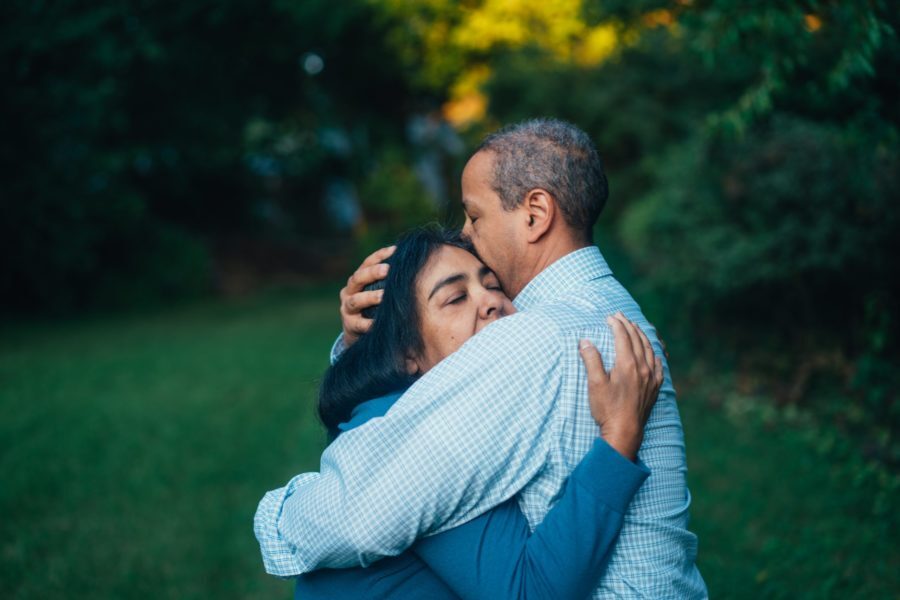Imagine a world where grudges don’t weigh you down like heavy suitcases, where past hurts don’t cloud your present happiness. Sounds pretty idyllic, right? Well, that world exists, and the key to unlocking it is a powerful tool called forgiveness. Now, forgiveness might seem like some mythical superpower reserved for saints and superheroes, but trust us, it’s a skill anyone can cultivate. Here’s the thing: holding onto resentment is like drinking poison and expecting the other person to get sick. It only hurts you. So, ditch the emotional baggage and unlock the freedom of forgiveness!

Understanding Forgiveness: Beyond Saying “Sorry”
Before we delve into the how-to, let’s clear something up: forgiveness isn’t about condoning someone’s actions or pretending everything’s okay. It’s not a magical eraser that instantly wipes away the hurt. Think of it more like releasing a grip. You acknowledge the pain, but you choose to let go of the anger and resentment. It’s a conscious decision to stop letting someone else’s actions dictate your happiness. By forgiving, you reclaim control and break free from the emotional prison you’ve built around yourself.
Why Forgive? The Power of Letting Go
So, why should you bother forgiving? Here’s the truth: holding onto anger and resentment only hurts you. Picture this: you’re stuck in a metaphorical room with the person who wronged you. All the doors and windows are locked, but guess who’s trapped in there with them? You are. Forgiveness is unlocking the door and walking out, choosing to spend your energy on positive things instead of stewing in negativity. Here are some additional benefits of forgiveness:
- Reduced Stress and Anxiety: Holding onto anger is like a chronic stressor, wreaking havoc on your mental and physical health. Forgiveness helps you release that tension and find inner peace.
- Improved Relationships: Forgiveness strengthens existing relationships and allows you to build new ones without the baggage of past hurts. Nobody wants to be friends with a walking grudge-holder!
- Increased Self-Esteem: When you forgive, you take back control of your emotions and choose not to be a victim. This empowers you and boosts your self-worth.
- Overall Well-Being: Forgiveness, like a deep breath of fresh air, clears out the negativity and allows you to experience true happiness and fulfillment.
The “How To” of Forgiveness: A Step-by-Step Guide
Okay, you’re convinced. You want to forgive, but where do you even begin? Here’s a simple, step-by-step guide to break free from the shackles of resentment:

- Acknowledge the Hurt: Before you let go, you need to acknowledge the pain you experienced. Ignoring it won’t make it disappear. Let yourself feel the anger, sadness, or whatever emotions come up. Journaling or talking to a trusted friend can help with this process.
- Understand the “Why”: While it doesn’t excuse their actions, try to understand why the person hurt you. Were they acting out of insecurity, pain, or ignorance? Sometimes, understanding the “why” can help lessen the sting of the action.
- Focus on Letting Go: Shift your focus from the person who wronged you to yourself. What do you need to do to heal and move on? This might involve therapy, journaling, or simply focusing on positive self-care practices.
- Practice Compassion: This doesn’t mean condoning their actions, but rather, trying to see them as a human being who made a mistake. Everyone messes up sometimes.
- Set Boundaries (Optional): While forgiveness doesn’t necessarily mean reconciliation, it’s important to establish healthy boundaries with the person who wronged you. If they continue to be toxic, limit your contact or cut them out entirely. Protecting your own well-being is crucial.
- Forgive Yourself: Often, the hardest person to forgive is ourselves. We beat ourselves up for trusting the wrong person or not seeing the red flags. Let go of that guilt. You’re human, and mistakes happen.
It’s a Journey, Not a Destination
Remember, forgiveness isn’t always a linear process. You might have good days and bad days. Don’t get discouraged if you have setbacks. Just keep reminding yourself that you’re working towards healing and a happier, healthier you.
Forgiveness Isn’t Always Easy, But It’s Always Worth It
Forgiving someone who hurt you can be incredibly difficult. There will likely be bumps along the road. Here are some common challenges and tips for overcoming them:

- Anger and Resentment: It’s perfectly normal to feel angry and resentful after being wronged. Acknowledge these emotions, but don’t let them control you. Focus on the long-term benefits of forgiveness for your own well-being.
- The Desire for Revenge: The urge to get back at the person who hurt you is understandable, but revenge ultimately creates a cycle of negativity. Focus on healing yourself and moving forward instead.
- Fear of Being Hurt Again: Forgiving someone might make you feel vulnerable, like you’re opening yourself up to further hurt. However, forgiveness doesn’t mean trusting them blindly. Establish healthy boundaries to protect yourself.
- Feeling Like a Doormat: Forgiveness isn’t about letting someone walk all over you. It’s about letting go of negativity and taking back control of your own happiness. You can forgive without forgetting or condoning their actions.
- The Belief That Forgiveness Means Weakness: On the contrary, forgiveness takes immense strength. It’s the act of choosing to rise above negativity and create a better life for yourself.
Remember: Forgiveness is a personal journey. There’s no right or wrong way to do it. Be patient with yourself, and celebrate your progress, no matter how small.
Forgiveness and Different Relationships
Forgiveness can look different depending on the relationship. Here are some things to consider:
- Forgiving a Friend or Family Member: These relationships are worth fighting for. Open communication and genuine apologies can pave the way for forgiveness and a stronger bond.
- Forgiving a Romantic Partner: Whether you choose to forgive a cheating partner depends on the specific situation and your willingness to rebuild trust. Sometimes, moving on is the healthiest option.
- Forgiving a Stranger: While not always necessary, forgiving a stranger for a minor offense can help prevent anger from escalating and ruining your day.
- Forgiving Yourself: Often, the hardest person to forgive is ourselves. Practice self-compassion and let go of guilt and shame. Everyone makes mistakes.
The Positive Ripple Effect of Forgiveness
Forgiveness isn’t just about you. It can have a positive ripple effect on those around you. When you choose to forgive, you:
- Set an Example for Others: By demonstrating forgiveness, you inspire others to let go of negativity and embrace compassion.
- Promote Healing in Relationships: Forgiveness can open doors to communication and reconciliation, fostering stronger bonds.
- Create a More Peaceful Environment: When you release anger and resentment, you contribute to a more positive and peaceful atmosphere for yourself and those around you.
Conclusion: Embrace the Power of Forgiveness and Move Forward
Forgiveness is a powerful tool that can liberate you from the prison of resentment. It doesn’t erase the past; it empowers you to create a brighter future. So, take a deep breath, let go of the anger, and choose forgiveness. You deserve to be happy and free. Remember, forgiveness is a gift you give yourself, not the person who wronged you.
Read Also
- Binding 13 by Chloe Walsh
- Tempt Our Fate by Kat Singleton
- How often you should go to the gym as a beginner
- These Top 7 IMDb Movies Will Blow Your Mind!
- Why did MTV go From Music Videos to Reality TV?
Frequently Asked Questions (FAQs)
1. Do I have to forgive everyone who has ever hurt me?
Forgiveness is a personal choice. There’s no obligation to forgive someone who has caused you immense pain. Focus on forgiving those who deserve it and prioritize your own well-being.
2. Does forgiveness mean forgetting?
No, forgiveness doesn’t mean forgetting what happened. It simply means letting go of the anger and resentment associated with the event. You can remember the experience without letting it control your emotions.
3. How can I tell if I’ve truly forgiven someone?
Forgiveness is a journey, not a destination. There’s no specific timeline or feeling associated with true forgiveness. If you find yourself dwelling less on the past and feeling lighter overall, you’re likely on the right track.
4. What if the person who hurt me hasn’t apologized?
An apology can certainly make forgiveness easier, but it’s not always necessary. You can choose to forgive someone for your own peace of mind, regardless of their actions.
5. Is therapy helpful for the forgiveness process?
Absolutely! A therapist can provide a safe space for you to explore your emotions and develop healthy coping mechanisms for dealing with past hurts.


